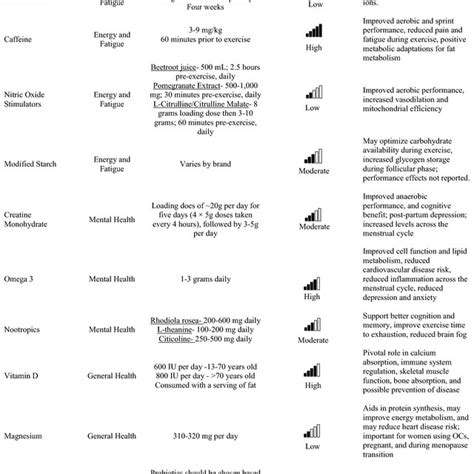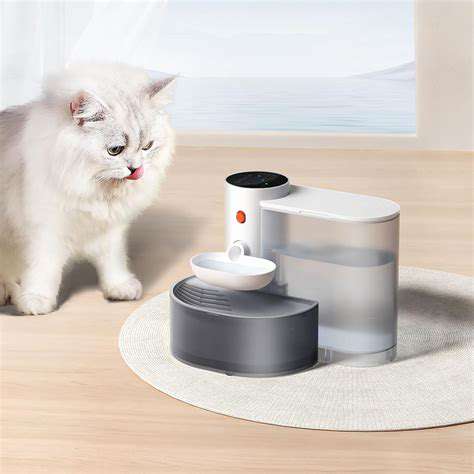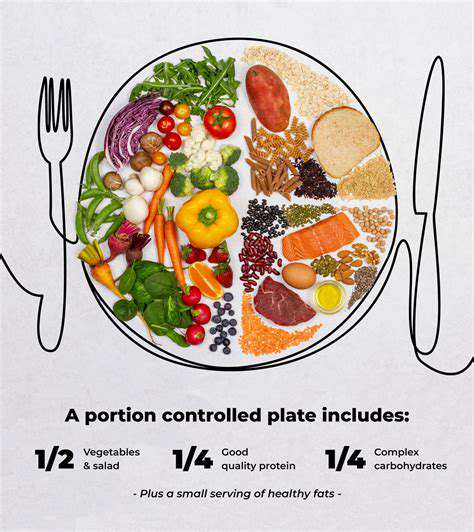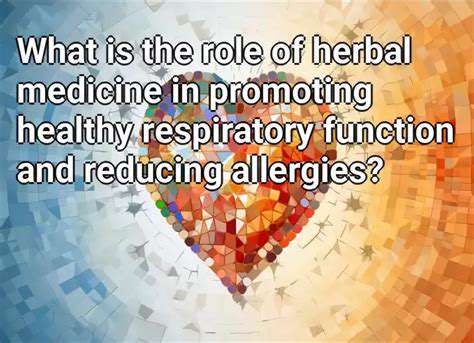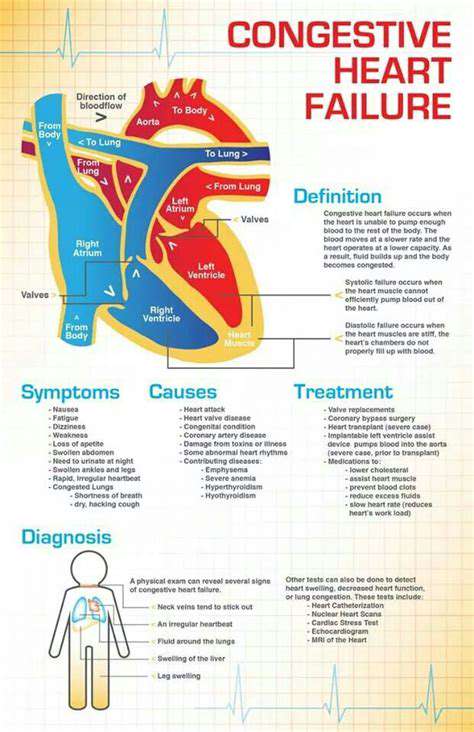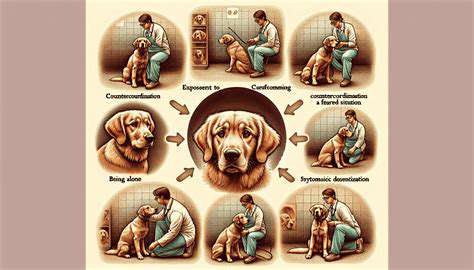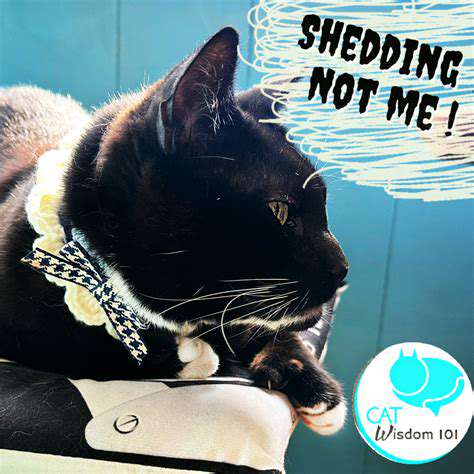Protecting Pets from Poisons: Household Dangers
Common Household Hazards for Pets

Common Food Hazards
Many common human foods are toxic to our furry friends. Chocolate, grapes, raisins, onions, and garlic are particularly dangerous, causing various health issues from vomiting and diarrhea to more severe complications like kidney failure. Always be mindful of what you're eating and store these items securely away from your pets. Knowing what's safe and unsafe for your pet is a crucial part of responsible pet ownership.
Xylitol, a sugar substitute commonly found in many candies, gum, and baked goods, can be extremely dangerous for dogs. Even a small amount can cause a sudden drop in blood sugar, leading to potentially life-threatening complications. It's essential to thoroughly check the ingredients of any treats or snacks before sharing them with your pets.
Household Cleaning Products
Many household cleaning products, including bleach, ammonia, and drain cleaners, contain toxic chemicals that can seriously harm or even kill pets if ingested. These products often have strong scents, making them appealing to curious pets. Always keep these products locked up securely in cabinets or areas that are inaccessible to your pets.
Never use human cleaning products on your pets. If your pet has ingested a cleaning product, seek immediate veterinary care. Prompt action is crucial in these situations.
Medication Hazards
Human medications, even over-the-counter ones, can be harmful or fatal to pets. Aspirin, ibuprofen, and acetaminophen are common examples of medications that can cause severe liver or kidney damage in pets. Always store your medications in a secure location and never give them to your pets.
Never assume that a medication is safe for your pet simply because it's safe for humans. Different species metabolize medications in different ways, and what's safe for one might be toxic to the other.
Environmental Hazards
Certain household items and plants can pose a threat to your pet's health. String, rubber bands, and small objects can be choking hazards. Keep these items out of reach. Improperly stored medications can also be a significant risk. Maintain a safe environment for your pet by ensuring that all potentially hazardous items are either secured or removed from their access.
Many common houseplants are toxic to pets, causing vomiting, diarrhea, or other symptoms. Research the plants in your home and ensure they are safe for your pets. If you have plants that are toxic, keep them out of your pet's reach.
Identifying Toxic Plants
Identifying Toxic Plants
Knowing which plants are toxic to pets is crucial for their safety. Many common houseplants, garden flowers, and even seemingly harmless weeds can cause serious health problems if ingested. Proper identification is the first step in preventing accidental poisoning. Thorough research and careful observation are essential for recognizing potentially harmful species in your home and yard.
It's important to remember that even plants that are generally considered safe can cause reactions in some animals. Factors like the amount consumed, the pet's individual sensitivity, and the plant's specific variety all play a role in the potential for toxicity. Therefore, it's always best to err on the side of caution and avoid keeping potentially hazardous plants within reach of your pets.
Common Indoor Toxic Plants
Many popular houseplants are toxic to pets, including lilies, azaleas, and peace lilies. Lilies, in particular, pose a significant threat to cats, as even a small amount of ingested pollen or bulb can cause kidney failure. Azaleas and rhododendrons contain toxins that can cause vomiting, diarrhea, and cardiac issues. It's important to research the specific toxicity of each plant before bringing it into your home.
Other common indoor plants that may be toxic include dieffenbachia, philodendron, and pothos. These plants contain calcium oxalate crystals, which can irritate the mouth, throat, and digestive system. Symptoms may include drooling, swelling, and difficulty swallowing. Always be mindful of the potential dangers associated with any plant you consider introducing to your home.
Outdoor Toxic Plants
Beyond indoor plants, numerous outdoor plants can be hazardous to pets. Many common garden flowers, such as daffodils and tulips, contain toxins that can cause vomiting and diarrhea. Some shrubs, like oleander and yew, are extremely poisonous, even in small amounts. Understanding the types of plants growing in your yard is vital for protecting your pets.
Recognizing Symptoms of Plant Poisoning
It's essential to be aware of the signs of plant poisoning in pets. These signs can vary depending on the specific plant and the amount ingested. Common symptoms include vomiting, diarrhea, lethargy, loss of appetite, excessive drooling, and difficulty breathing. If you suspect your pet has ingested a toxic plant, immediately contact your veterinarian or a pet poison control center.
Preventing Plant Poisoning
The best way to protect your pets from plant poisoning is prevention. Remove any potentially toxic plants from your home and yard, ensuring they are out of reach of your pets. Educate yourself about the poisonous plants in your area. If you have a garden, consider creating a safe zone for your pets that excludes potentially harmful plants. Always supervise your pets when they are outside, especially in areas with unknown vegetation.
The Dangers of Medications and Over-the-Counter Drugs
Medication Mishaps in Pets
Accidental ingestion of human medications is a significant threat to pets. Many common household items, like pain relievers, cold medicines, and even supplements, can be toxic to animals. The effects of these substances can vary widely, from mild discomfort to severe organ damage or even death. Understanding the potential dangers of human medications and ensuring they are stored securely away from pets is crucial for their safety.
Pet owners need to be vigilant about what medications are in their home and how they are stored. Knowing the specific dangers associated with different medications and the signs of poisoning will significantly aid in preventing serious health issues for pets.
Over-the-Counter Drug Risks
Over-the-counter (OTC) drugs, while seemingly harmless to humans, can be extremely dangerous to pets. Many OTC medications contain ingredients that can cause significant health problems, such as nausea, vomiting, diarrhea, liver damage, and even seizures in animals. Aspirin, ibuprofen, and even common cold remedies can have devastating consequences for a pet if ingested.
Always double-check the label of any OTC medication before administering it to a pet. If a pet has ingested an unknown substance, immediately contact a veterinarian or animal poison control center for guidance on the appropriate steps to take.
Hidden Hazards in Human Supplements
Many people supplement their diets with vitamins, minerals, and other nutrients. However, many of these supplements can be harmful or even fatal to pets if ingested. The potent concentrations of certain vitamins, minerals, and herbs can overwhelm a pet's system, causing a variety of health problems, including liver damage, kidney failure, and neurological issues.
Always keep all supplements securely stored away from pets. If you suspect a pet has ingested a supplement, seek immediate veterinary attention. Knowing the specific ingredients and potential risks associated with different supplements is essential for pet owners to protect their animal companions.
Proper Storage and Prevention
The safest way to protect pets from medication and over-the-counter drug exposure is prevention. Secure storage is paramount. Keep all medications, supplements, and potentially dangerous substances locked up in a cabinet or drawer that is inaccessible to pets. Use childproof containers whenever possible.
Educate yourself and your household about the dangers of medication and over-the-counter drugs for pets. Familiarize yourself with the signs of poisoning, and know how to react should your pet come in contact with potentially harmful substances. Regularly checking your home for any potential hazards is a proactive way to protect your beloved pet.
Teach children about the importance of keeping medications and drugs away from pets. This will create a safe environment for both humans and animals, preventing accidental exposure and promoting responsible pet ownership.
Establish clear rules and routines in your home regarding medication storage and handling to reduce the risk of accidental ingestion by pets. This will help to create a safer environment for your pets and ensure their well-being.
Regularly inspect your home for any potential hazards, such as spilled medications or forgotten containers, to prevent accidents.
Protecting Pets from Cleaning Products and Other Chemicals
Identifying Hazardous Chemicals
Knowing which cleaning products and household chemicals pose a risk to pets is crucial for their safety. Many common items, such as bleach, ammonia, drain cleaners, and certain pesticides, can cause severe illness or even death if ingested or absorbed through the skin. Understanding the potential dangers of these substances and where they are stored in your home is the first step in protecting your furry friends.
Furthermore, look beyond the obvious. Some seemingly harmless items, like certain scented candles, air fresheners, and even some cosmetics, can contain chemicals toxic to pets. Thorough research and awareness of the ingredients in products used around your home are essential to minimizing risks.
Safe Storage Practices
Proper storage is paramount in preventing accidental exposure. Keep cleaning supplies and other potentially hazardous chemicals locked away in securely closed cabinets or storage areas that are out of reach for curious pets. Using childproof latches and containers specifically designed for chemical storage can further enhance safety.
Consider the height of your cabinets. Even if a product is stored on a high shelf, a determined pet might be able to reach it. If possible, store these items in a separate room altogether.
Recognizing Symptoms of Exposure
Early detection of potential exposure is key to timely treatment. Watch for signs of distress, such as vomiting, diarrhea, difficulty breathing, excessive drooling, or changes in behavior. A sudden loss of appetite, lethargy, or unusual tremors can also indicate exposure to harmful chemicals. Promptly contacting a veterinarian is essential if you suspect your pet has been exposed to any cleaning product or chemical substance.
Preventing Accidental Ingestion
Prevention is always better than cure. Keep cleaning supplies and other potentially hazardous chemicals in secure locations, out of reach of your pets. Always supervise your pet while cleaning, especially when working with potentially harmful substances. This will help to prevent accidental ingestion or skin contact.
If your pet has a tendency to chew or explore, ensure that the area where cleaning is being done is safely contained. This might mean temporarily relocating your pet to another room during cleaning tasks.
Choosing Safer Alternatives
Fortunately, many effective and pet-safe cleaning products are available. Look for products that are specifically formulated for use around pets. These alternatives often use natural ingredients and are less likely to cause harm to your furry companions.
Consider using vinegar, baking soda, or lemon juice for many cleaning tasks. These natural products are often just as effective as traditional cleaning solutions, but they are much safer for pets.
Proper Disposal Methods
Proper disposal of cleaning products is just as important as their safe storage. Never pour cleaning products down the drain or flush them down the toilet, as this can contaminate water supplies and harm wildlife. Always follow the manufacturer's instructions for proper disposal, or contact your local waste management agency for guidance. Properly disposing of old or expired cleaning products prevents environmental contamination and further protects your pet and the environment.
Preventing Accidental Poisoning and Taking Action
Understanding Common Household Hazards
Many everyday household items can be toxic to pets if ingested. These range from cleaning supplies and medications to certain plants and even some seemingly harmless items like chocolate. Recognizing these hazards is the first step in preventing accidental poisoning. Knowing what to look for and where these items are stored can significantly reduce the risk for your furry friend.
Proper storage is crucial. Keep cleaning products, medications, and other potentially hazardous items out of reach and in securely closed containers. Regularly check for spills or leaks, especially in areas where pets frequently roam.
Identifying Potential Poisoning Symptoms
Knowing the signs of poisoning is vital for prompt action. Symptoms can vary depending on the substance ingested, but common indicators include vomiting, diarrhea, loss of appetite, lethargy, tremors, difficulty breathing, and seizures. If you notice any of these symptoms, even if they seem minor, contact a veterinarian immediately. Time is critical when dealing with pet poisoning.
Safeguarding Your Home Environment
Creating a safe environment for your pet involves more than just storing hazardous materials properly. Be mindful of plants that might be toxic to pets. Research common poisonous plants in your area and remove or keep them out of reach. Ensure any pesticides or fertilizers are stored securely and inaccessible to pets. Regularly inspect your home for potential hazards, such as old medications or cleaning supplies.
The Importance of Immediate Action
If you suspect your pet has ingested a potentially poisonous substance, immediate action is crucial. Never attempt to induce vomiting unless instructed by a veterinarian. Gather any information you can about what your pet may have eaten, including the name of the product if possible, and the approximate amount. This information is critical for the veterinarian to assess the situation and formulate a treatment plan.
Seeking Veterinary Care and Support
Taking your pet to a veterinarian as soon as possible is paramount. Provide the veterinarian with all the details you can recall about the suspected poison and any symptoms your pet is exhibiting. They will be able to determine the best course of action, which may include administering specific antidotes or supportive care. Your veterinarian is your best resource for navigating this challenging situation, and their expertise will ensure the best possible outcome for your pet.
Preventing Future Incidents
Once the immediate crisis is over, focus on preventing future incidents. Review your home environment and identify any potential hazards. Consider using childproof locks or storage containers to prevent access to potentially dangerous items. Educate yourself on common household toxins and plants that may be harmful to your pet and make necessary adjustments to your home. By taking these proactive steps, you can significantly reduce the risk of accidental poisoning in the future.
Read more about Protecting Pets from Poisons: Household Dangers
Hot Recommendations
- Best Pet Bowls: Stainless Steel and Ceramic
- Pet Hydration: Why It's Crucial
- Stop Counter Surfing: Training Your Dog to Stay Off
- Pet Hypothyroidism: Symptoms and Management
- Signs of Pet Liver Disease: What to Watch For
- Pet Emergency Kits: What to Pack
- Dangers of Xylitol: Toxic to Dogs
- Dealing with Pet Diarrhea: When to See a Vet
- Preparing Pets for Travel: Tips for a Smooth Trip
- Pet Depression: Recognizing the Signs
